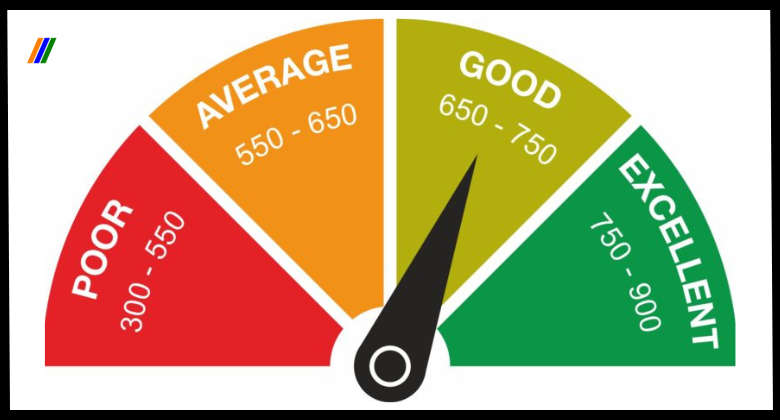Unlocking Financial Opportunities: How to Get a Personal Loan or Business Loan

If you are looking for financial assistance, whether it be for your personal needs or for your business, getting a loan can be a viable option. Loans provide the funds you need to achieve your goals, whether it is to purchase a new home or to start a new business. In this article, we will discuss how to get a loan, both for personal and business purposes.
Contents
How to get Personal or Business Loan:
- Determine the type of loan you need Before you apply for a loan, you must first identify the type of loan that is most suitable for your needs. There are various types of loans available in the market, such as personal loans, business loans, mortgage loans, and auto loans, to name a few. It is important to research the different types of loans to determine which one is best for your situation.
- Check your credit score Your credit score is one of the most important factors that lenders consider when approving a loan application. A good credit score can increase your chances of getting approved and can even get you a better interest rate. To check your credit score, you can use free online services like Credit Karma or Credit Sesame. If your credit score is less than desirable, you may want to take some time to improve it before applying for a loan.
- Gather your financial documents Lenders will require you to provide financial documents to verify your income, assets, and debts. Some of the most common financial documents you will need to provide include tax returns, bank statements, pay stubs, and proof of any assets you own. Make sure you have these documents ready before you start the loan application process.
- Research lenders and compare loan offers There are many lenders in the market, including banks, credit unions, and online lenders. It is important to research different lenders and compare loan offers to find the best deal. Look at the interest rates, loan terms, and fees associated with each loan offer to determine which one is the most favorable.
- Fill out the loan application Once you have chosen a lender and a loan offer, it is time to fill out the loan application. The application will ask for personal information, financial information, and the purpose of the loan. Be sure to fill out the application accurately and honestly, as any discrepancies may lead to a loan denial.
- Wait for loan approval After submitting the loan application, you will need to wait for the lender to review your application and determine whether you are eligible for the loan. This process can take anywhere from a few days to a few weeks, depending on the lender and the type of loan.
- Sign the loan agreement If your loan application is approved, the lender will provide you with a loan agreement that outlines the terms of the loan, including the interest rate, loan term, and repayment schedule. Be sure to read the agreement carefully before signing it, as it is a legally binding document.
- Receive the loan funds Once you have signed the loan agreement, the lender will disburse the loan funds to you. Depending on the type of loan, the funds may be disbursed directly to a bank account or to the vendor that you are using the funds to pay.
Here are the top 10 personal / business loan financial companies in India (in no particular order):
- HDFC Bank
- ICICI Bank
- Bajaj Finserv
- Axis Bank
- Kotak Mahindra Bank
- Tata Capital
- IndusInd Bank
- Fullerton India
- Standard Chartered Bank
- State Bank of India (SBI)
What is the Cibil Score, and why is it important to know your Cibil Score before applying for a loan?

Your CIBIL score, also known as your credit score, is a three-digit number that represents your creditworthiness. Financial institutions such as banks and lenders use your CIBIL score to determine your creditworthiness and decide whether to approve your loan application or not. Here are a few reasons why you should know your CIBIL score before applying for a loan:
- Get an idea of your creditworthiness: Your CIBIL score is an indicator of your creditworthiness, which helps financial institutions evaluate your ability to repay the loan on time. Knowing your CIBIL score before applying for a loan will give you an idea of your creditworthiness and help you understand your chances of getting approved for a loan.
- Identify errors and discrepancies: Sometimes, your credit report may contain errors or discrepancies that can negatively impact your CIBIL score. By checking your CIBIL score before applying for a loan, you can identify any errors or discrepancies and take steps to rectify them before you apply for a loan.
- Improve your chances of getting approved: If your CIBIL score is low, it may negatively impact your chances of getting approved for a loan. By knowing your CIBIL score beforehand, you can take steps to improve your credit score and increase your chances of getting approved for a loan.
To check your CIBIL score, you can visit the official website of Credit Information Bureau (India) Limited (CIBIL) and request for your credit report. You may need to pay a fee to access your report. Once you have your report, review it carefully to identify any errors or discrepancies and take steps to rectify them. If your CIBIL score is low, you can take steps to improve your score by paying your bills on time, reducing your credit utilization ratio, and avoiding multiple loan applications at the same time.
So, getting a loan can be a great way to achieve your financial goals, whether it is for personal or business purposes. To increase your chances of getting approved for a loan, be sure to identify the type of loan you need, check your credit score, gather your financial documents, research lenders and compare loan offers, fill out the loan application accurately, wait for loan approval, sign the loan agreement, and receive the loan funds. By following these steps, you can be on your way to getting the financial assistance you need.

